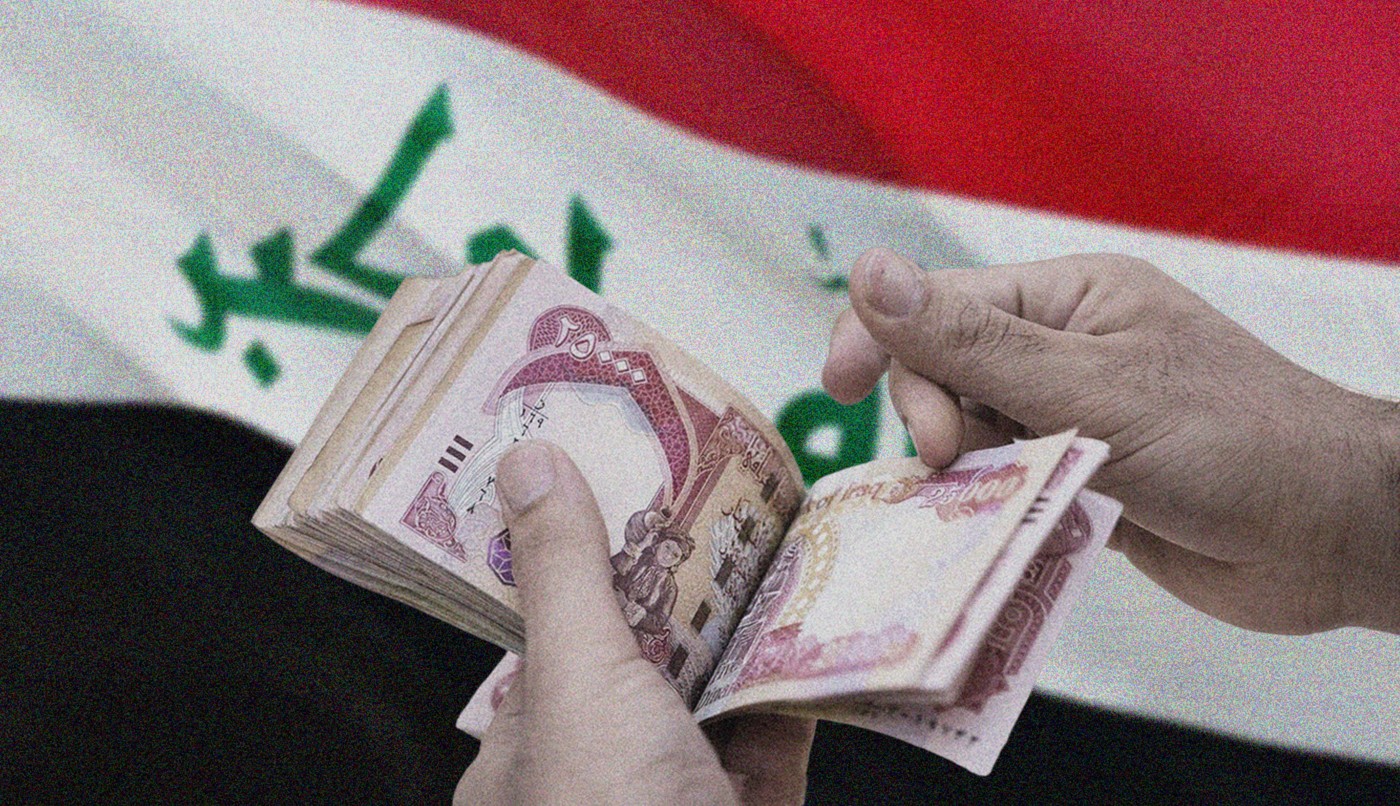BAGHDAD, Iraq - Six months have passed since it was passed and yet Iraq’s three-year budget and how much of it has actually been disbursed remains unclear at many levels.
According to official figures, only 20% of the capital budget for 2023 has been spent even as the fiscal year draws to a close.
There were also, as of late December, no final accounts available for the current year.
After many months of struggling to come to an agreement and sessions lasting until dawn, the Iraqi parliament passed the country’s budget for the years 2023, 2024 and 2025 in June.
The three-year budget is the largest ever in Iraqi history, worth a total of 198.9 trillion IQD (153 billion USD) per year.
No deadlines set
The parliament’s finance committee has not set a date for disbursing all budget allocations, committee member Jamal Kocher told The New Region in a December 14 interview.
“A significant part of the capital budget for the year 2023, of which only 20% has been spent by the government,” he added, “is expected to be spent after December 20. over a five-day period until the accounts are closed.”
As concerns the operating budget, Kocher said that it would “be spent later” and noted that the current system allows for greater “flexibility”.
The capital budget funds investment, while the operational budget is for personnel and operating costs.
Another member of the parliamentary finance committee, Moeen Al-Kazemi, told The New Region that he disagrees with Kocher’s view and stressed that over 20% of the budget has been spent.
Kazemi said that while the budget was 198 trillion IQD, “revenue generated in Iraq amounted to approximately 150 trillion” and “47 trillion IQD were spent during the first half of the year 2023 and 70 trillion in the second half, as expected, which means that there is no financial deficit for the 2023”.
The operational budget, he added, has already been spent on the salaries of state employees and pensions.
Kazemi said that he believes that “serious work will be done on outstanding projects and investment budget allocations will be spent at the beginning of 2024.”
State employees’ salaries ‘not at risk’
Parliamentary finance committee member Kazemi noted that a “delay in the release of budget allocations will not affect state employees’ salaries”.
“We have plenty of money and a significant rise in oil prices” means that Iraq is not in danger of lacking funds for these purposes, he said.
However, “there is a financial crisis in the Kurdistan Region of Iraq, which the central government is trying to solve,” he added.
Kazemi added that the committee had not “received the final accounts for the 2023 budget yet” and noted that they “must be sent to the finance committee in order to audit the disbursement mechanism”.
Iraqi revenues stood at over 134 trillion IQD in 2023, based on the price of a barrel of oil of $70. Oil income constitutes over 90% of the country’s revenues.
2024 and 2025 budgets ‘flexible’
Financial advisor to the prime minister Mazhar Muhammad Saleh echoed the others’ reassurances in an interview with The New Region on December 13 that state employees’ salaries and pensions would not be negatively affected.
In 2020, the Iraqi government faced a crisis making it unable to pay state employees for a period due to effects of the COVID pandemic, a decline in oil prices at the global level and a decline in demand for oil. It was at that time forced to borrow money to pay salaries for the months of June, July and August.
“The three-year budget gave flexibility in rotating allocations on an ongoing basis,” he stressed, “and this is one of the advantages of the three-year budget in overcoming temporal and legislative obstacles.”
The prime minister’s advisor noted that the budgets for the next two years can be adjusted if needed and approved by parliament, depending on the country’s financial state at that time.
‘Halting Kurdistan oil exports affected Iraqi revenues in general’
Economic affairs researcher Safwan Qusay said in a December 14 interview with The New Region that, “halting the Kurdistan Region’s oil exports affected Iraq’s revenues overall”, but that “the rise in oil prices in recent months made up for the shortfall”.
“The current spending rate is about 7 trillion dinars per month, while the budget was planned on the basis of 15 trillion dinars,” he noted.
“The amount of money spent is 80% of the operating budget,” he said.
The three-year budget deficit is estimated to be about 64 trillion IQD, a record high and about double that of 2022.



 Facebook
Facebook
 LinkedIn
LinkedIn
 Telegram
Telegram
 X
X


